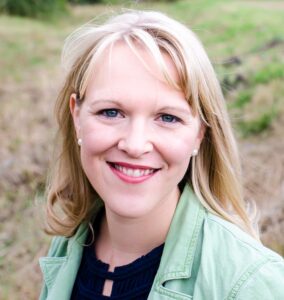“Mom, did you ever have global pandemics when you were a kid?” Of all the questions I never expected to hear from my eleven-year-old, this one tops the list. No, I quickly assured him, we most definitely did not have global pandemics that shut down society when I was child. But we also didn’t have the internet or email or cell phones when I was his age either. I remember the confused look on his face when I tried to explain how we would find facts in books in the library by looking up their reference number in a card catalog. Today, he can search for the exact same information with just a few keystrokes. Not only that, the search engine can even predict what he’s looking for and make suggestions. It’s no exaggeration to say that we’re living in truly unprecedented times.
But even when changes are good—like being able to easily access information—they can be disorienting. Every time you turn around it can feel like you’re facing a completely new challenge. Often, there’s no clear path forward because no one’s ever faced this exact thing before. It can feel like we’re all making it up as we go along. But even as the world around us changes, it’s important to remember that some things stay the same.
In fact, the book of Ecclesiastes opens with a somewhat startling claim that nothing really changes at all:
What has been is what will be,
Ecclesiastes 1:9-10
and what has been done is what will be done;
there is nothing new under the sun.
Can one say about anything,
“Look, this is new”?
It has already existed in the ages before us.
On the surface, this is an easy to dismiss. A lot has changed since Ecclesiastes was written. Not only do we have new technologies, we also conceive of ourselves in radically different ways. In the modern era, we’re much more concerned with protecting personal rights, and we value individual human life differently. What exactly is the author getting at when he says “there is nothing new under the sun”?
At the very least, Ecclesiastes is reminding us that the more things change, the more they stay the same. This applies, in particular, to human nature. Our basic needs, desires, foibles, fears, insecurities, and questions remain the same. What is the purpose of life? How can we find meaning and joy? Does our work matter? Where is God in all this? Does He love me?
These deeply human questions are not bound by a specific time and place. The same things we wrestle with today are, in many ways, the same things the writer of Ecclesiastes wrestled with thousands of years ago. That means that the answers people have found throughout the ages might be answers that we need for today. And maybe, if we give attention to timeless wisdom, we’ll find a way to navigate these unprecedented times.
For Christians, this timeless wisdom is found in Jesus Christ, who John tells us is the Word of God made flesh.
In the beginning was the Word, and the Word was with God, and the Word was God. He was with God in the beginning. All things were created through him, and apart from him not one thing was created that has been created. In him was life, and that life was the light of men.
John 1:1-4
The timelessness of Jesus means He’s relevant no matter how things change. Who He is and what He has done for us transcends time. So that even if we can’t trust a rapidly changing world in unprecedented times, we can trust the Savior of that world. And it’s this deeper, stable reality that will keep us grounded. It’s the wisdom that C. S. Lewis called in The Lion, the Witch, and the Wardrobe the “deeper magic from before the dawn of time.” For Lewis, this “deeper magic” was the reality of Christ’s sacrificial love for us—a love that is so deep and true that it reaches back to the very origins of God’s creative work. Or as Ephesians 1:4 describes, God “chose us in [Christ], before the foundation of the world, to be holy and blameless in love before him.”
During rapid change that feels like unprecedented times, it’s more important than ever to know what won’t change. And the love of God for his children through Christ Jesus remains “the same, yesterday, today, and forever” (Heb. 13:8)
ABOUT HANNAH ANDERSON
Hannah Anderson is an author and Bible teacher who lives in the Blue Ridge Mountains of Virginia. Her first Bible study book is Life Under the Sun: an 8-Session Study on the Book of Ecclesiastes. Her books include Humble Roots: How Humility Grounds and Nourishes Your Soul, Turning of Days: Lessons from Nature, Season, and Spirit, and the recently released, Heaven and Nature Sing. Hannah’s goal is to encourage believers to think deeply and broadly about how the gospel transforms every area of life.
You can connect with her at her blog sometimesalight.com and on X @sometimesalight.
The post Not So Unprecedented Times appeared first on Lifeway Women.
DMTBeautySpot
via https://dmtbeautyspot.com
Erin Franklin, DMT.NEWS, DMT BeautySpot,



0 comments